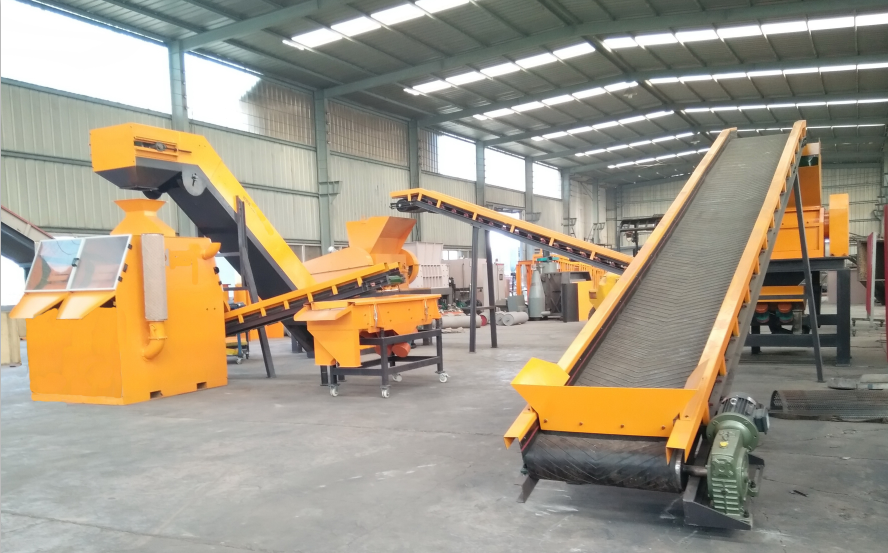

নভে. . 13, 2024 09:38 Back to list
How to Recycle Computer Boards
In our increasingly digital age, computers and their components have become an integral part of our lives. However, the rapid pace of technological advancement means that older models become obsolete and are often discarded. Among these components, computer circuit boards, also known as printed circuit boards (PCBs), are prevalent. Recycling computer boards is crucial not only for reducing electronic waste but also for recovering valuable materials. This article will guide you through the recycling process of computer boards and discuss its importance.
Understanding Computer Boards
Computer boards serve as the backbone of electronic devices. They connect different components, such as the central processing unit (CPU), memory, and storage, enabling them to communicate and function together. Unfortunately, when these devices are no longer in use, they can contribute significantly to the growing problem of electronic waste, or e-waste, which poses environmental hazards due to the toxic materials often found in electronics.
Why Recycle Computer Boards?
Recycling computer boards is essential for several reasons
1. Environmental Protection E-waste contains hazardous substances like lead, mercury, and cadmium, which can leach into the soil and water, causing contamination. Recycling helps prevent these materials from entering landfills.
2. Resource Recovery Computer boards are rich in valuable materials, including gold, silver, copper, and various plastics. By recycling these components, we can recover and reuse these resources, reducing the need for mining and lessening our overall environmental footprint.
3. Energy Conservation Recycling computer components generally requires less energy compared to producing new materials from raw resources. This efficient use of energy can mitigate greenhouse gas emissions.
The Recycling Process
Recycling computer boards involves several steps, which can vary based on the recycling facility
. Here’s a general overview of the process
1. Collection The first step is to collect the obsolete computer boards. You can drop them off at local e-waste recycling centers, some retail electronics stores, or organized collection events.
2. Sorting Once collected, the boards are sorted based on their types and materials. Some facilities have sophisticated machinery for this task, while others may rely on manual sorting.
3. Dismantling The next step involves dismantling the boards to retrieve valuable components. Skilled workers or machines remove chips, connectors, and other parts that can be recycled or refurbished.
4. Shredding After dismantling, the boards are often shredded to break them down into smaller pieces. This makes it easier to separate metals and plastics for recycling.
5. Separation Advanced processes, such as using magnets and air classification, help in separating ferrous and non-ferrous metals, plastics, and other materials.
6. Processing Recovered materials are then processed and purified. For example, metals are melted down to be reused in new products, while plastics are reformulated.
7. Re-manufacturing Finally, the recovered materials can be used in the manufacturing of new electronics or other products, closing the recycling loop.
Finding a Recycling Facility
To ensure that your computer boards are recycled responsibly, look for certified e-waste recyclers in your area. Certifications, such as R2 (Responsible Recycling) and e-Stewards, indicate that the facility adheres to high environmental and ethical standards.
Conclusion
Recycling computer boards is vital for protecting our environment and conserving resources. By taking the time to recycle electronic waste properly, we can help reduce pollution, decrease the demand for raw materials, and promote a more sustainable future. If you have old computer boards lying around, consider recycling them instead of throwing them away. Each small action contributes significantly to the overall effort in managing e-waste effectively. Together, we can build a cleaner, greener planet.
Latest news
The Future of Metal Recycling: Revolutionizing Waste Management
NewsMay.14,2025
Optimizing Waste with Recycling Lines
NewsMay.14,2025
Municipal Solid Waste Sorting Line: Revolutionizing Waste Management
NewsMay.14,2025
Metal Shredders: Essential Tools for Efficient Recycling
NewsMay.14,2025
Maximize Your Profits with a Copper Wire Granulator
NewsMay.14,2025
Home Metal Shredder: A Smart Choice for Your Home Recycling Needs
NewsMay.14,2025